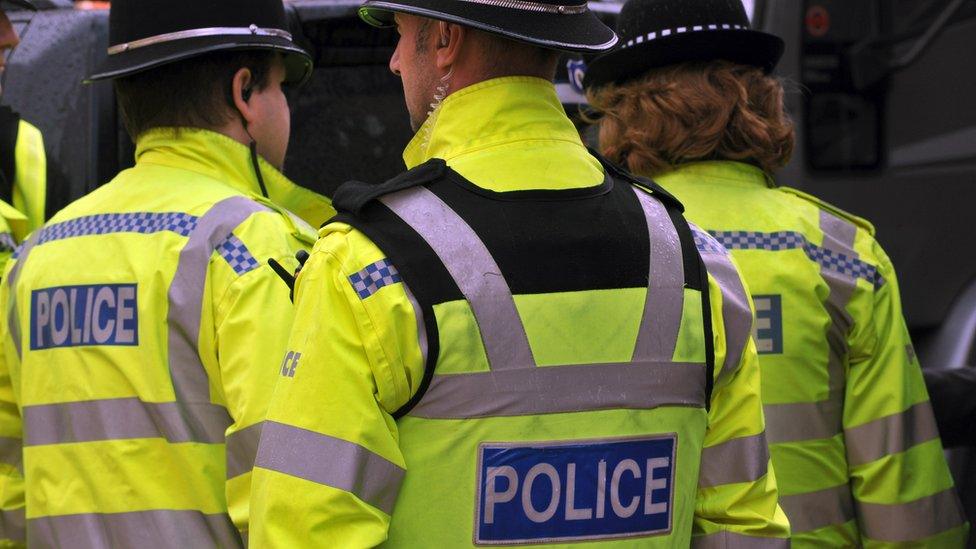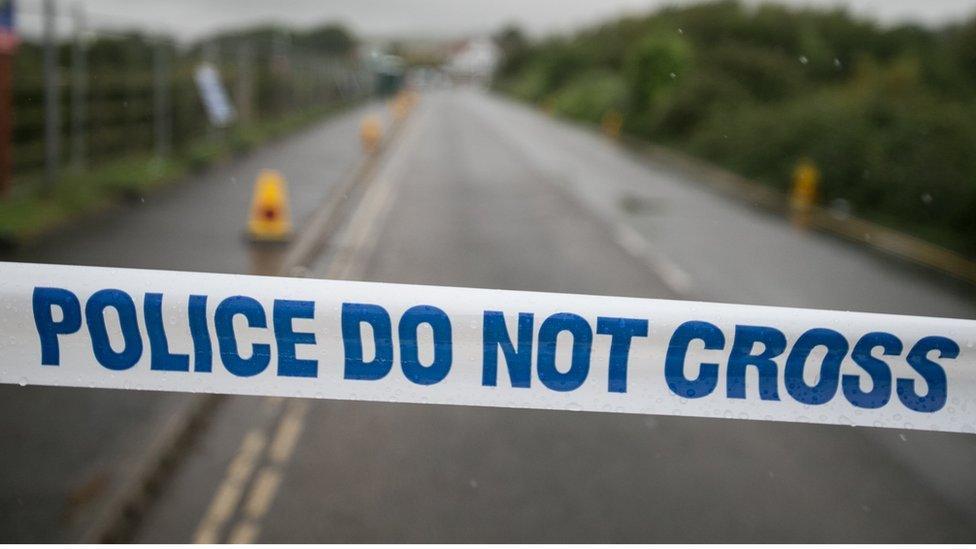Police forces 'overwhelmed' by digital evidence, watchdog finds
- Published

The HMIC report found eight forces "require improvement" in understanding and planning for future demands
Some police forces in England and Wales risk being "overwhelmed" by the volume of digital evidence being collected, the police watchdog has warned.
Her Majesty's Inspectorate of Constabulary said many forces had a "significant gap" in digital skills.
It said there were sometimes "unacceptable delays" in basic tasks like getting data off a mobile phone.
Minister Brandon Lewis said: "The public expect the police to reform to meet the challenges of modern crime."
Inspectors said some forces were not capable of dealing with the amount of digital evidence being gathered, especially in cases such as harassment, sexting and serious domestic abuse.
Mike Cunningham, who led the review, said every officer and member of staff needed to understand how to extract evidence from phones and CCTV as the nature of crime changed.
He said: "They are real, here and now threats. They range from the most serious kind of national terrorism threats down to... an attempt to get you to part with your money through an email.
"The urgency of the issue is not matched by the urgency with which the service is responding."
Digital crime required a different type of forensic capability to traditional offences where police looked for evidence such as DNA or fingerprints, he said.
"We are not saying that they will not have the capability anywhere in the force to extract that information," said Mr Cunningham.
"What we are saying is that they are being overwhelmed. There is evidence that there is far too much of this evidence coming in for forces to meet that demand."
The inspectors warned that delays due to such skills shortages could allow perpetrators to continue offending, or lead victims to give up on the case and drop support for the police investigation.

The warning came in a review of forces' abilities to manage demands and resources, as well as plan ahead.
Of all 43 police forces in England and Wales, it found eight forces "require improvement" in the ways they understand future demand for services and ensure staff have the right skills. Thirty-three forces were assessed as "good", which is the "expected standard", and two - Durham and West Midlands - as "outstanding".
The eight forces deemed to require improvement are Bedfordshire, Cambridgeshire, City of London, Devon and Cornwall, Dyfed Powys, Humberside, Nottinghamshire and South Yorkshire.
This is the second "efficiency" inspection carried out by Her Majesty's Inspectorate - last year one force, Humberside, was rated as inadequate. This year no force has been given the bottom rating although the number of forces rated as "outstanding" has fallen from five to two.
Inspectors said there were some signs that, after a better than expected financial settlement in police funding in November 2015, some forces had "reduced the pace and ambition for change".
Welcoming the report, policing minister Brandon Lewis said in a statement: "I am concerned by the suggestion that some forces may have reduced the pace and ambition of their reform plans.
"The public expect the police to reform to meet the challenges of modern crime. Forces owe it to the communities they serve to deliver."
- Published20 October 2015
